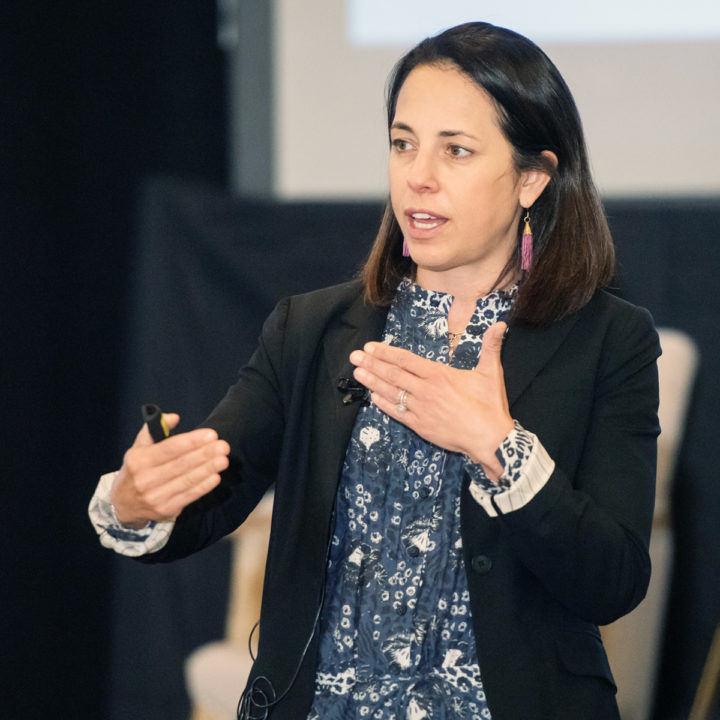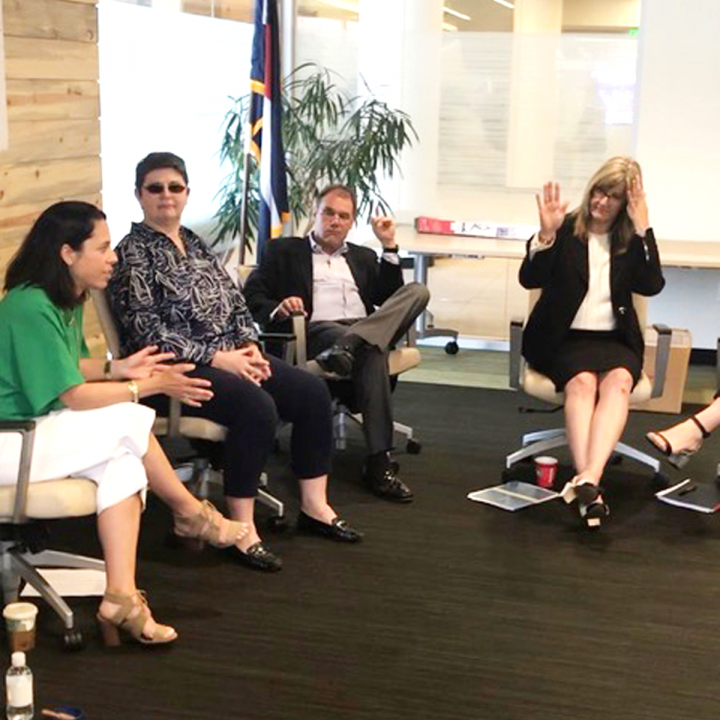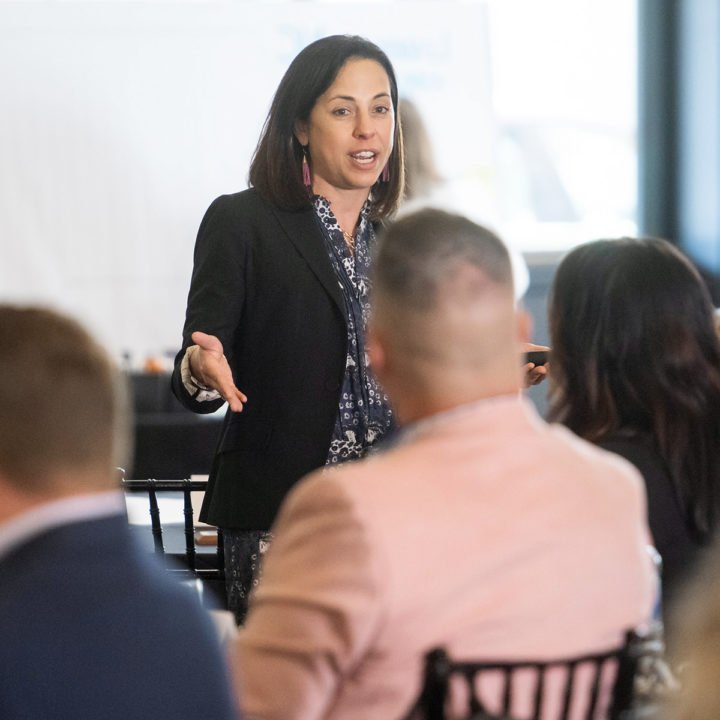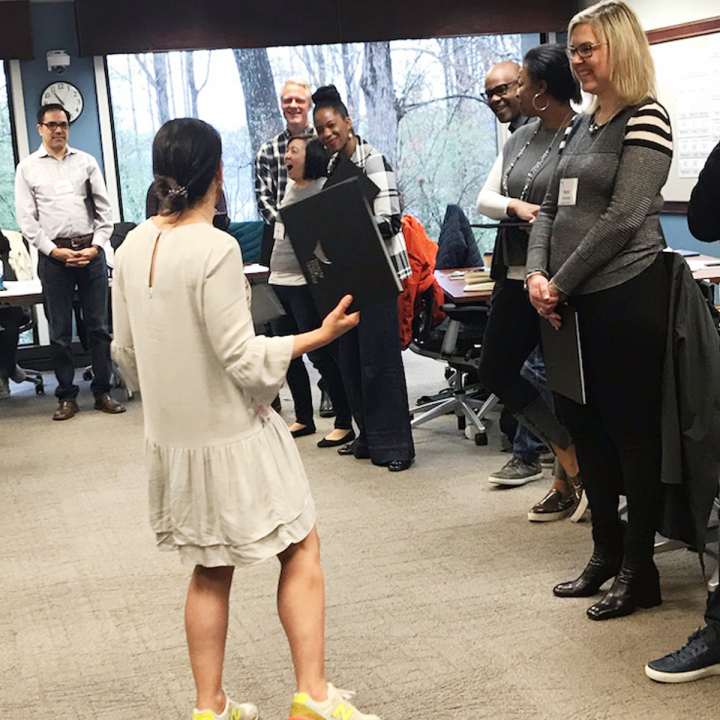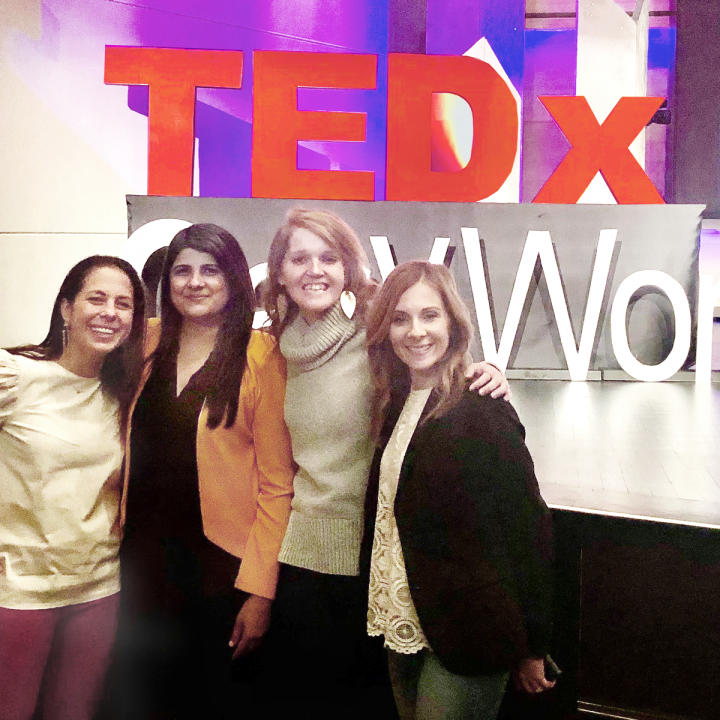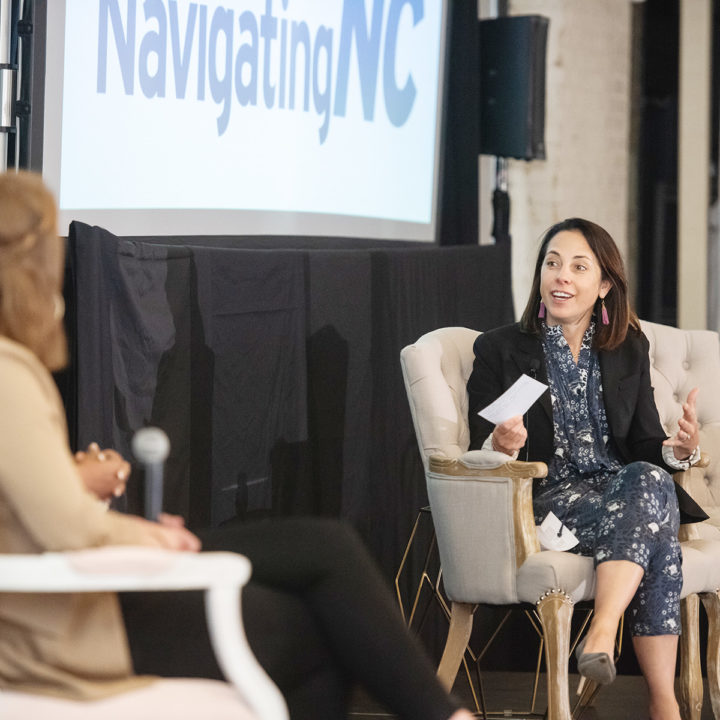Corporate Training
Training and Development Offerings
The metaphor we like to use is exercise; we all realize there are muscles in our body that are strong while others are weaker. We spend time at the gym working to strengthen the weaker muscles while also ensuring we sustain our initial strength. Similarly, SmartfulWorks wants to support each individual’s strengths and help them build skills through our Corporate Training where they need development and support.
Training Workshops Offered
- Management 101
- Communicating With Impact & Courageous Conversations
- Influencing Skills and Negotiations
- Leading & Succeeding on a Virtual Team
- The Intergenerational Workplace
- Grit, Resilience & Energy Management
- How to Lead your organizations and teams during the AI revolution
Management 101 - A Three-Part Series
During the initial workshop of the series, we will explore the characteristics of leaders verses managers and discuss when and how you leverage the strengths of each role. We will dive into personality preferences, using informal assessments such as Social Styles or the MBTI to discuss strengths and the risks of each type and challenge participants to flex and practice working with team members different from themselves.
We will end the day by launching our powerful communication section. In this section we will review the basic elements of communication, which can lead and inspire high performing teams, and we will touch on how you can communicate clear goals and delegate work.
High-Level Agenda
- Leadership vs. Management
- Management 101
- Personality Preferences
- Active Listening
- Delegation
Workshop two will focus on strengthening the foundational skills needed to be a productive, organized, and motivational leader. We will build on the elements of communications we explored in workshop one. The participants will learn the Thomas Kilmann Conflict quadrants and a conversation process, which can enable them to approach conversations and conflict with a positive mindset to exchange critical information and provide feedback to push projects and teams forward.
Managers will be given a chance to evaluate their executive presence and influencing skills, while exploring how to grow their presentation skills. One of the most crucial characteristics of a manager or leader is developing and coaching others. We will leverage the conversation about influencing and begin to explore how participants can coach and give feedback to their team members.
High-Level Agenda
- Powerful Conversations Skills and Conflict Management (Kilmann)
- Presentations Skills
- The 3V’s of Communication (UCLA study)
- Coaching and Feedback
- Running Effective and Efficient Meetings
The foundation of every high performing team is trust. Trust in the workplace can seem intangible, so we will explore the elements of workplace trust and examine how participants can increase trust on their current teams.
Managers will learn the Tuckman stages of teaming and self- assess where their current teams are within the cycle. We will discuss the elements which lead to highly motivated teams. These elements will include: working within your strengths, sharing vision and values, and intrinsic verses extrinsic rewards. Through an animated activity, we will touch on the diversity of teams and how to ensure that all members of the team are heard, feel that they belong, and are all working toward the shared vision and goals.
High-Level Agenda
- Trust and Believability
- Strengths Exploration
- Motivation- Rally cry? What is it?
- High Performing Teams: The Tuckman Cycle
- Setting Goals
- Ladder of Inference
During the initial workshop of the series, we will explore the characteristics of leaders verses managers and discuss when and how you leverage the strengths of each role. We will dive into personality preferences, using informal assessment such as Social Styles or the MBTI and discuss strengths and the risks of each type and challenge participants to flex and practice working with team members different from themselves. We will end the day by launching our powerful communication section. In this section we will review the elements of communication, which can lead and inspire high performing teams, and we will touch on how you can communicate clear goals and delegate work.
High-Level Agenda
- Leadership vs. Management
- Management 101
- Personality Preferences
- Active Listening
- Delegation
Workshop two will focus on strengthening the foundational skills needed to be a productive, organized, and motivational leader. We will build on the elements of communications we explored in workshop one. The participants will learn Thomas Kilmann Conflict quadrants and a conversation process, which can enable them to approach conversations and conflict with a positive mindset and exchange critical information and feedback to push projects and teams forward.
Managers will be given a chance to evaluate their executive presence and influencing skills, while exploring how to grow their presentation skills. One of the most crucial characteristics of a manager or leader is developing and coaching others. We will leverage the conversation about influencing and begin to explore how participants can coach and give feedback to their team members.
High-Level Agenda
- Powerful Conversations Skills and Conflict Management (Kilmann)
- Presentations Skills
- The 3V’s of Communication (UCLA study)
- Coaching and Feedback
- Running Effective and Efficient Meetings
The foundation of every high performing team is trust. Trust in the workplace can seem intangible. We will explore the elements of workplace trust and examine how participants can increase trust on their current teams. Managers will learn the Tuckman’s stages of teaming and self- assess where their current teams are within the cycle. We will discuss the elements, which lead to highly motivated teams. These elements will include, working within your strengths, sharing vision and values, and intrinsic verses extrinsic rewards. Through an animated activity, we will touch on the diversity of teams and how to ensure that all members of the team are heard, belong and are all working toward the shared vision and goals.
High-Level Agenda
- Trust and Believability
- Strengths Exploration
- Motivation- Rally cry? What is it?
- High Performing Teams: Tuckman Cycle
- Setting Goals
- Ladder of Inference
During the initial workshop of the series, we will explore the characteristics of leaders verses managers and discuss when and how you leverage the strengths of each role. We will dive into personality preferences, using informal assessments such as Social Styles or the MBTI to discuss strengths and the risks of each type and challenge participants to flex and practice working with team members different from themselves.
We will end the day by launching our powerful communication section. In this section we will review the basic elements of communication, which can lead and inspire high performing teams, and we will touch on how you can communicate clear goals and delegate work.
High-Level Agenda
- Leadership vs. Management
- Management 101
- Personality Preferences
- Active Listening
- Delegation
Workshop two will focus on strengthening the foundational skills needed to be a productive, organized, and motivational leader. We will build on the elements of communications we explored in workshop one. The participants will learn Thomas Kilmann Conflict quadrants and a conversation process, which can enable them to approach conversations and conflict with a positive mindset to exchange critical information and provide feedback to push projects and teams forward.
Managers will be given a chance to evaluate their executive presence and influencing skills, while exploring how to grow their presentation skills. One of the most crucial characteristics of a manager or leader is developing and coaching others. We will leverage the conversation about influencing and begin to explore how participants can coach and give feedback to their team members.
High-Level Agenda
- Powerful Conversations Skills and Conflict Management (Kilmann)
- Presentations Skills
- The 3V’s of Communication (UCLA study)
- Coaching and Feedback
- Running Effective and Efficient Meetings
The foundation of every high performing team is trust. Trust in the workplace can seem intangible, so we will explore the elements of workplace trust and examine how participants can increase trust on their current teams.
Managers will learn the Tuckman stages of teaming and self- assess where their current teams are within the cycle. We will discuss the elements which lead to highly motivated teams. These elements will include: working within your strengths, sharing vision and values, and intrinsic verses extrinsic rewards. Through an animated activity, we will touch on the diversity of teams and how to ensure that all members of the team are heard, feel that they belong, and are all working toward the shared vision and goals.
High-Level Agenda
- Trust and Believability
- Strengths Exploration
- Motivation- Rally cry? What is it?
- High Performing Teams: The Tuckman Cycle
- Setting Goals
- Ladder of Inference
Communicating with Impact & Courageous Conversations
Communication is the skill we most often exercise each day. Whether it is in meetings, over calls, on Zoom, over email, or Slack, we are constantly communicating, and how we connect matters. SmartfulWorks improves your skills, enabling you to have more courageous and meaningful conversations. We help you approach each interaction aware of your words, tone, and body language. We ensure you understand the incredible impact of listening. We work to improve each individual’s conversation and communication skills through half day, full day, and multi-day sessions. SmartfulWorks also offers a Presentations Skills Course to improve face-to-face and front-of-the-room communication, giving people the confidence to address an audience of one or one hundred.
Influencing Skills and Negotiations
Research, by Daniel Pink, says we devote roughly twenty-four minutes of every hour to persuading, influencing, and convincing others in ways that don’t involve anyone making a purchase. So, what is influence? According to Pink it is “moving other people to part with resources – whether something tangible like cash or intangible like effort or attention – so that we both get what we want…”
In this course we turn the traditional idea of influence and negotiation on its head. We move from the idea of I (the influencer) need to push you (the influenced) to do what I want….instead, we ask: who are you trying to influence? and what does the other person or situation need from you? and how do you both get what you want?
Together we work through an Influence and Negotiation map grounded in real world people and situations.
(Data collected from survey called What Do You Do At Work? Gathered data from 9057 global respondents.)
Leading and Succeeding on a Virtual Team
Building strong virtual teams requires effective connections across time zones, cultures, business units and technology. Leaders must learn to ‘weave a web’ that links all the critical success factors to sustain this connection and translate it to high performance. We offer the PRI Leadership© developed course and show leaders how to forge a stronger web by:
- Building avenues for clear communication
- Creating and sustaining trust on a virtual team
- Staying attuned to team dynamics in the absence of physical connections
- Developing transparency with clearly defined roles and responsibilities
- Leveraging cutting-edge technology
The Intergenerational Workplace
For the first time, workplaces have as many as five generations working in the same place. We each come to the job with differing experiences, worldviews and approaches. If not addressed correctly this can lead to conflict, but if leveraged in the right way we can discover we are far more alike than different. Instead of criticizing differences, we celebrate them. Diverse perspectives lead to innovation, growth, and excitement. In the session, participants will interact by sharing their understandings of the generations and the influential events that impacted each group. We will then explore the strengths of these characteristics, ways to build trust, minimize assumptions, and maximize communication, enabling each person to work towards the organization’s common goals and vision.
Grit, Resilience & Energy Management
Most high-performing professionals from athletes, surgeons, chefs, and military members have built-in processes and rituals to enable them to handle the intense complexities and stressors of the job. They are aware of the four dimensions of energy, physical, mental, emotional, and spiritual, and have implemented ways to maximize all of them through managing triggers, building in rest, and ensuring their work aligns with their purpose and passions. Corporate America lacks similar structures, and executives are burning out. In this course, we facilitate an understanding of the four dimensions of energy and allow participants to build their plans around rest, triggers, and passion alignment.
Assessments Offered

- Enneagram
- WorkPlace Big Five Profile
- Influence Style Indicator
- FIRO-B
- Strength Finder 2.0
- Myers Briggs Type Indicator
- Emotional Intelligence (EQ)
- DiSC
- Social Styles

